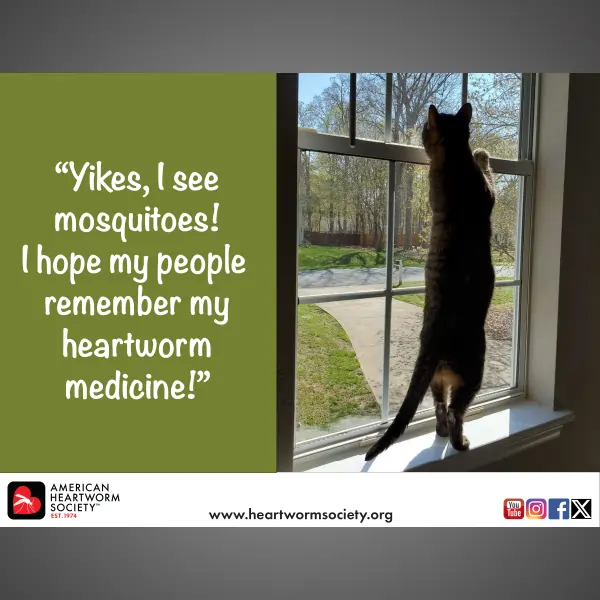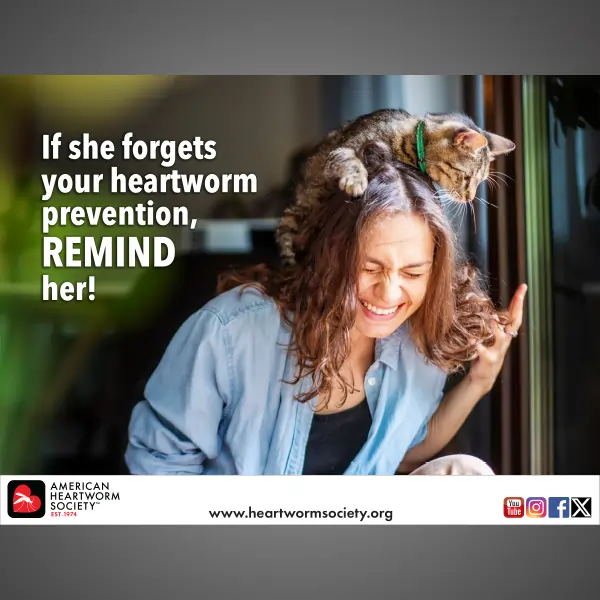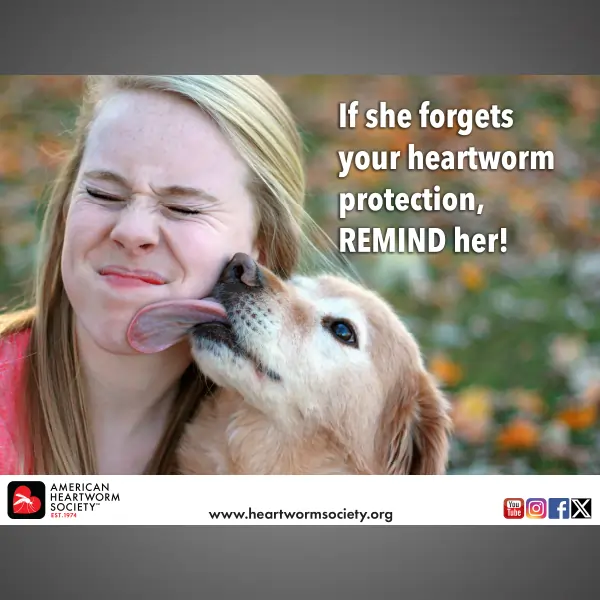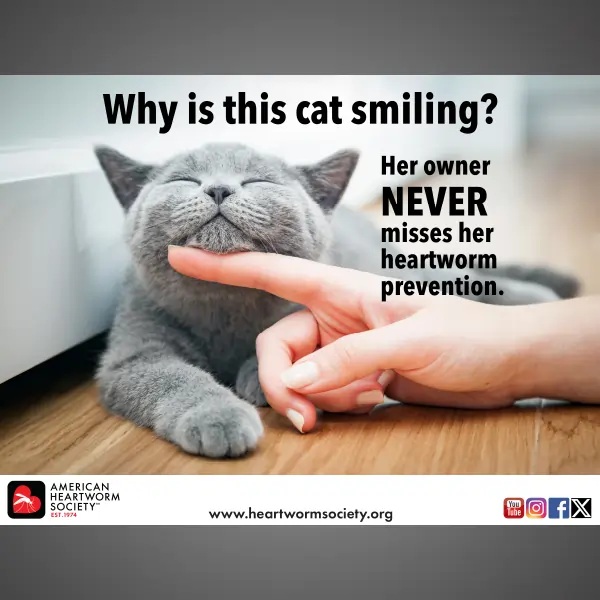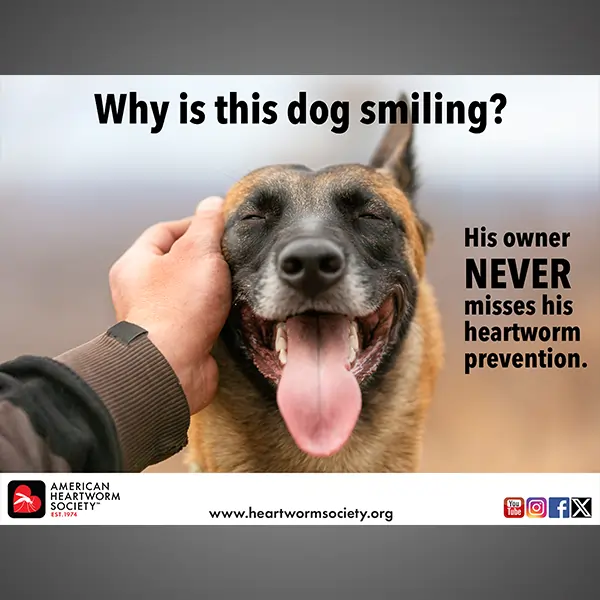STEPHEN JONES, DVM
While pet numbers in the U.S. are increasing, the number of annual heartworm preventive doses sold in the U.S. is declining. I believe this is a frightening trend, especially considering that the average number of heartworm cases per veterinary clinic rose by 21% between 2013 and 2016.1
I recently researched medication adherence in human patients2 in order to better understand why people don’t take their own medications. In the process, I learned that the reasons my clients don’t give pets heartworm preventives as directed are similar to the reasons they skip their own cholesterol, diabetes and blood pressure medications.
FORGETFULNESS. One in four patients says they miss taking medications because they forget, and I’ve found forgetfulness to be the most common reason my clients skip or miss doses of heartworm preventives, too. No matter how easy it may be to administer preventives, an action taken once a month or twice a year isn’t necessarily frequent enough to become habitual. That’s why most owners need an external reminder, such as a text, email or calendar alert. If we want owners to give heartworm preventives on time, every time, we need to build a reminder into every prescription.
COST. Expense is a leading reason people don’t fill their prescriptions or purchase refills, and it’s a real concern for pet owners, too—especially if they live on fixed incomes or have multiple pets. I address cost in several ways: (1) I inform owners when less-expensive options are available; (2) I give the owner the option to buy fewer doses of medication at a time; and (3) I explain that failure to give heartworm preventives—or to give them year-round—can result in treatment that costs many times that of giving preventives.
FEAR. People worry about medication side effects. Their anxiety might not be based on experience; in fact, many concerns are based on stories people hear or read. When clients voice concerns like these, I remind them that today’s preventive medications are extremely safe, and I reeducate them about how deadly heartworm infection can harm their pets.
MISUNDERSTANDING. Patients and owners who don’t understand the reason for a medication are much less likely to take or give it as directed. With a disease like heartworm, which has subtle symptoms, it’s especially important to educate owners about the disease, as well as how their preventive medication works.
Owners may have these and other reasons for poor adherence, but the answer is always the same. Take the time to educate your clients about every aspect of heartworm prevention— and repeat as needed.
1 2016 American Heartworm Society Incidence Survey
2 Adherence and Health Care Costs, A Luga, MJ McGuire. Risk Manag Healthc Policy, 2014; 7: 35–44.



